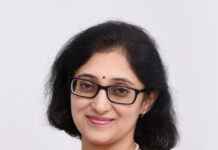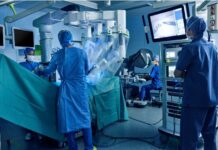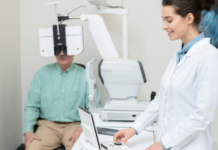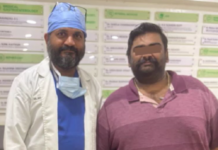If there’s one platform that brings masterminds together from various walks of life, the first name that comes to mind is TEDxGateway. The long wait is over, as the biggest melting pot of inspiring ideas is back with its 10th edition of TEDxGateway on 2nd December 2018. Hosted at the DOME @ NSCI Mumbai, this year, audiences can brace themselves for a promising line-up of 20+ powerhouse intellectuals, each having an extraordinary story to tell.
Staying true to its theme of ‘Ideas worth Spreading’, the event will welcome thought leaders, visionaries, disruptors and trendsetters from across fields like education, science, technology, art and culture. Bringing alive stories of passion, perseverance and persistence, every speaker is sure to evoke a sense of motivation and inspiration among the 5500+ attendees at the event. Additionally, the main event will also be webcasted across 200 campuses in India and multiple cities hosting TEDx’s across the world, targeting over 150,000+ viewers.
Mihir Shah – Founder and CEO, UE LifeSciences:
Mihir Shah, Founder and CEO, UE LifeSciences provides affordable breast cancer detection devices.
Mihir developed a iBreastExam™ (or iBE) is a game-changing technological breakthrough for countries and regions with rising incidence of breast cancer, most cases presenting at late stages and limited to no access to early detection for most women. iBreastExam™ harnesses the power of innovative sensor technology, software computing and mobile revolution, such that a doctor or any health-worker can offer objective and effective breast examinations, with ease and comfort.
- Where did this idea of such devices come up? Any experience?
My partners Matt Campisi, Bhaumik Sanghvi and I, all of us have seen one too many of our friends and family members get diagnosed with breast cancer. Matt and I, both have in fact seen our mother-in-laws go through it. One of the key inventors of the iBreastExam sensor technology is a breast cancer survivor. This is an extremely personal mission for many of us.
Our research showed that breast cancer is highly treatable when diagnosed early and yet most women get diagnosed late in the developing world. We further learnt that this happens because there aren’t enough doctors, breast cancer control programs built with mammography are very expensive and women really don’t want to get painful and radiation-based tests.
- Can you talk about the iBreastExam. How does the device work? How is it making breast cancer early detection possible for women?What challenges did you face while creating the device?
iBreastExam is an innovative, US FDA cleared breast examination device that’s enabling early detection of breast cancer in a whole new way. It is a tiny device that fits in the palm of hand to provide painless, radiation-free, clinically effective and highly affordable way to identify small lumps in the breast before it’s too late. Over 175,000 women have taken the test already in over 12 countries and it is recognized by WHO as an Innovative Health Technology.
iBreastExam uses an innovative sensor that can assess tissue elasticity in real time. Breast tumors are hard, like a seed inside the lemon. The patented ceramic sensor in the device can sense the tissue elasticity by converting mechanical pressure into electrical signals and by evaluating the changes in stiffness, in real-time, to provide the results instantly on the spot, without any pain or radiation.
As for the challenges faced, the short answer is, too many! Building a passionate global team, engineering failures, transferring technology from USA to India while maintaining quality and performance, getting US FDA, clinical validations around the world and obviously funding (everyone has that though!).
- How important is early detection of breast cancer and why do you think its cases are increasing so rapidly?
Breast cancer is the most common cancer amongst women globally, including India. Every year, 1,60,000 women get diagnosed and over 87,000 die from it, in India alone; half are below age 50 years. Breast cancer is highly treatable IF detected early. At present, most women present at a late stage and so 1 out of 2 don’t survive past five years. In contrast, in USA, 9 out of 10 survive.While breast cancer is highly treatable when caught early, most women are diagnosed late.
There are many factors contributing to the rise in cancer in general and breast cancer in particular. Some of them are western lifestyle, late childbirth, lack of breast feeding, increase in the use of tobacco and alcohol, etc.
- Do you think Indian women are more prone to breast cancer? If yes, why?
Not particularly, however since our country is very young, about half of the women that are diagnosed with breast cancer are younger than 50 years of age. Of all the women in India today, some 25 million are likely to get diagnosed at some point and only 1 out of every 2 will survive.
- Did UE LifeSciences work on any other devices or mechanism to detect or cure breast cancer?
In the past, we built a thermal imaging device called NoTouch BreastScan. It was the only device of it’s kind with US FDA clearance in fact. In the world of science and innovation, you have to keep building disruptive solutions and so today we have the iBreastExam. It uses a lot more disruptive, accurate and portable sensor that can assess tissue elasticity in real time. Tumors are harder than normal breast tissue and the sensors in iBreastExam can “feel” them out, quickly and without any pain or radiation.
- What would you like to advise women to prevent / detect symptoms of breast cancer?
I am not a Doctor and would not like to offer health advice to women. I’d sayit couldn’t hurt to eat well, exercise routinely and to avoid tobacco, excessive alcohol and other carcinogens.It’s good to be “breast aware”, as in, pay attention to your body and the changes its going through on a routine basis. And don’t forget to get an iBreastExam preventive breast health check-up soon!
Corporate Comm India(CCI Newswire)























